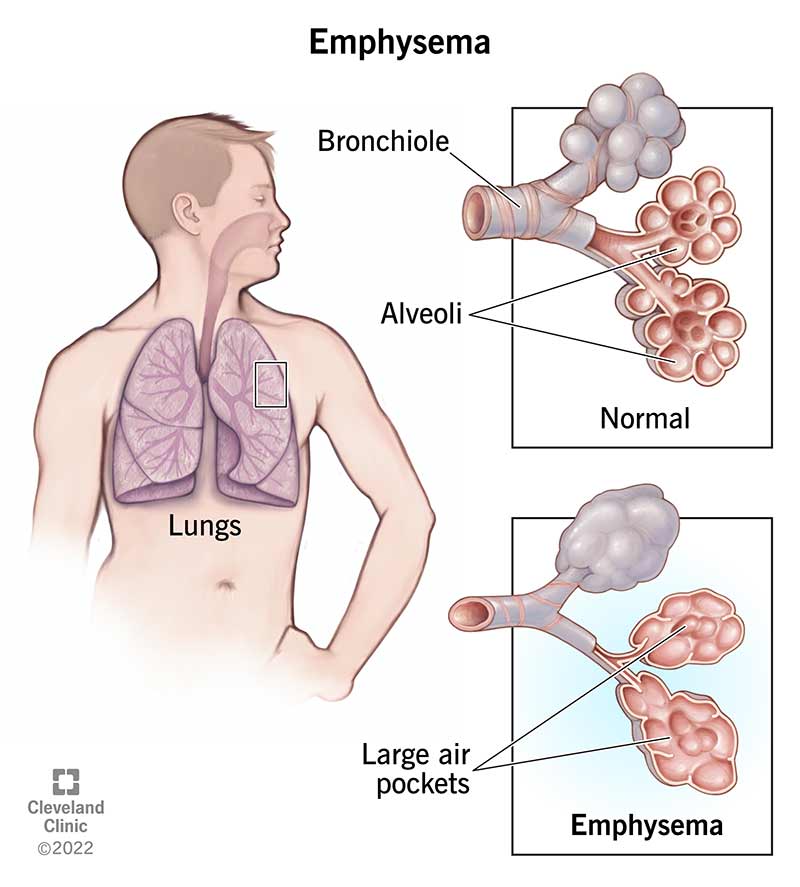Emphysema
Emphysema Overview
Emphysema is a chronic lung condition categorized under chronic obstructive pulmonary disease (COPD). In this disorder, the air sacs (alveoli) in the lungs become damaged, leading to a significant reduction in respiratory function and causing a host of symptoms.
Causes of Emphysema
The primary cause of emphysema is long-term exposure to harmful irritants, particularly cigarette smoke. Additionally, other risk factors include air pollution, chemical fumes, and genetic factors. Smoking remains the most significant contributor, with data suggesting that nearly 80-90% of emphysema cases are linked to smoking habits.
Symptoms
Common symptoms associated with emphysema include:
- Shortness of Breath: Patients experience difficulty breathing, particularly during physical activity.
- Chronic Cough: A persistent cough may develop, often worsened by exertion.
- Wheezing: Some individuals may notice a wheezing sound while breathing.
- Fatigue: General tiredness can be common as the illness progresses.
As the disease advances, these symptoms may worsen, severely impacting the patient’s quality of life.
Diagnosis
Diagnosis typically involves a thorough review of medical history, a physical examination, and various tests such as pulmonary function tests (PFTs), imaging studies (like chest X-rays or CT scans), and blood tests. These assessments help gauge lung function and identify the extent of damage.
Treatment Options
While emphysema is a progressive disease and cannot be cured, several treatments can help manage symptoms and improve quality of life:
- Medications: Bronchodilators and steroids are commonly prescribed to ease breathing.
- Pulmonary Rehabilitation: This program combines exercise, education, and support to help manage symptoms.
- Oxygen Therapy: For patients with low oxygen levels, supplemental oxygen can be necessary.
- Surgery: In severe cases, lung volume reduction surgery or a lung transplant may be considered.
Outlook
Patients with emphysema must work closely with healthcare providers to monitor the condition and establish an effective treatment plan. With appropriate management, many individuals can maintain a reasonable quality of life despite the challenges posed by the disease.
For further detailed information about emphysema, you can refer to the following links:
- Cleveland Clinic - Emphysema
- Mayo Clinic - Emphysema Symptoms and Causes
- MedlinePlus - Emphysema Treatment
- Medical News Today - Emphysema Details
- WebMD - Emphysema Overview
- UCSF Health - Emphysema Information
- Yale Medicine - Emphysema Fact Sheet
These resources provide comprehensive insights into emphysema, aiding in further understanding and management of the condition.
Sources
:max_bytes(150000):strip_icc()/what-is-emphysema-2249091_final-f0dbd0a9fd6746119069485a18026332.png)

Related Questions
Work fast from anywhere
Stay up to date and move work forward with BrutusAI on macOS/iOS/web & android. Download the app today.
